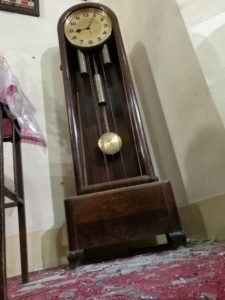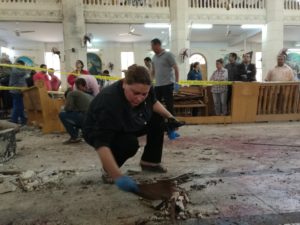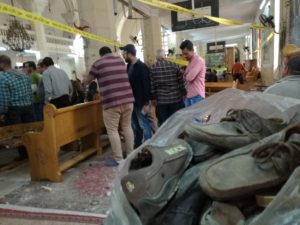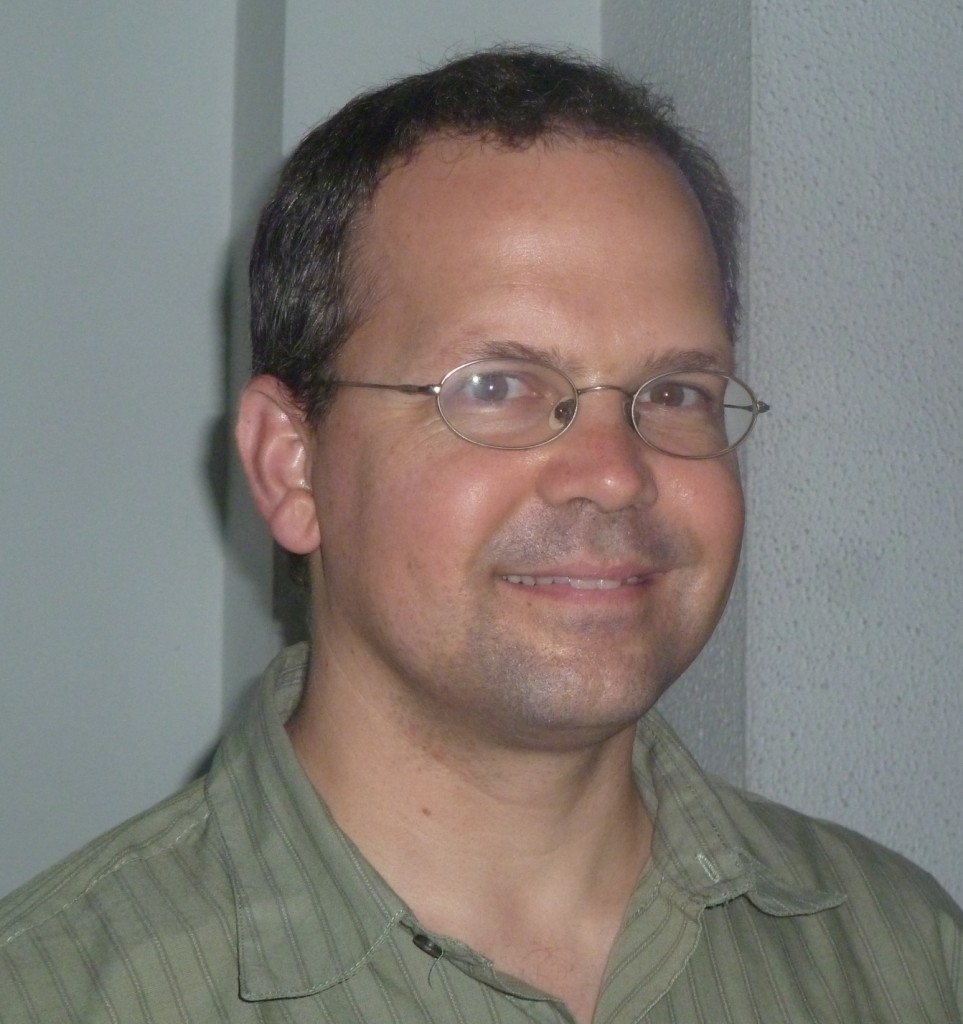Episode one. “They are just following the teachings of their book, and the example of their prophet,” said a Coptic friend following the twin church bombings in Tanta and Alexandria on Palm Sunday, killing dozens. I refrained from rolling my eyes, as this was a moment for comfort amid tragedy. Such a refrain is not uncommon among some Egyptian Christians, that while not all Muslims are terrorists, Muslims who follow their religion tend in that direction.
But then he continued. “Just a little while ago my friend told me that those men are now in heaven, because they killed non-Muslims.”
If my eyes weren’t rolling, they were now bulging from their sockets, aghast. Your friend? He would say such a thing to you, to your face?
Episode two. “I am praying for the Copts,” said another Egyptian Christian friend. “When you know your enemy you can retaliate. But who are these terrorists? If the Copts explode we could become like Lebanon, and no one wants that.”

My eyes have never had so much activity, astounded again. Lebanon? Is that in play? I can’t recall ever hearing such sentiment from a Copt. Over the past several years, the polarized Egyptian narrative has warned of civil war, of forces internal and external wishing to divide the nation. But it always seemed exaggerated, and never sectarian. Islamist and non-Islamist forces might collide, but Egypt has no Christian pockets of population that might form a regional militia. The country is integrated and homogeneous, Muslim and Christian living side-by-side.
Taken together these episodes illustrate a worrisome development within a longstanding reality. Muslims and Christians tend to be friends, neighbors, and quite similar in common culture. At the same time, there is a latent but tangible reservoir of mistrust. It activates occasionally, especially when community issues turn into matters of honor over houses of worship, land, or women. But for the most part among a 90 million plus population, religious distinction is managed relatively well.
Therefore, the most disturbing aspect of the bombings is that it has now happened twice. Last December the Islamic State ran a suicide bomber into a chapel adjacent the papal cathedral, killing 29 mostly women and children. They vowed it was just the beginning.
But to say “twice” is misleading. Palm Sunday was the second of two major bombings targeting Christian civilians, amid scores of previous attacks against security personnel. But other smaller acts less well reported have left the sadly repetitive “community” pattern and veered into clearly sectarian motivation.

Last February hundreds of Copts fled their homes in northern Sinai as the Islamic State went on a killing spree. But prior to this in various locations across Egypt, there were several unexplained murders of Coptic citizens. And in Alexandria a Coptic merchant had his throat slit on a crowded public street, by a Muslim offended at his sale of alcohol.
No evidence has yet emerged that the individual incidents were explicitly planned by the Islamic State. But research by Mokhtar Awad and others have revealed an emerging strategy within the group to spark an Iraq-style sectarian war in Egypt. As their project wanes in the self-proclaimed caliphate, the land of the Nile becomes a new field to mine.
Will it work? It is a more different bet than before, when the sectarian divide was between Shia and Sunni, who also inhabited distinctive majority areas. But Awad notes that a sectarian mentality has long been cultivated in Egypt by Islamists and overlooked if not abetted by the state. Copts have responded and nurtured religious distinction as well, though within their traditional Christian ethos of monasticism, martyrdom, and loving your enemy.
Perhaps the Islamic State is betting their resilience cannot hold out forever, that an explosion against somebody is coming. Perhaps they hope the Muslim keenness on national unity will erode over time, should Copts—even a Copt—lash out in retaliation or appear too “uppity” in the demand they be treated as equal citizens.
So far it is a bad bet. The church counsels patience and the eternal crown of glory. Each attack against Copts has prompted a firm re-insistence of togetherness from state and society. Similar militant attacks in the 1990s turned the Muslim street decidedly against the jihadis.

But the world now is a different place, and the tactics exceed anything witnessed previously in Egypt. A second incident suggests there will be a third, and fourth, and so on. Even if Egypt is unlikely to become Syria, Palm Sunday suggests more bloodshed is coming.
Any American policy response will be fraught with difficulty, mixed up in the morass of Middle Eastern politics. Support too closely and risk accusation of backing repressive governments. Step away and risk accusation of empowering illiberal Islamists. Either one will beg claims of interference and violation of sovereignty. God bless the diplomats who must navigate carefully.
But in lieu of policy, the eyes can be put to better use than described above. One, dart vigilantly. Scan surroundings, beware of trouble, and look for solutions. Two, tear liberally. Tragedy demands we weep with those who weep, in sympathy and solidarity.
Otherwise, amid ongoing violence they may glaze over. Otherwise, amid religious distinctiveness they may grow jaundiced. Jesus demanded that our eye be “single”, lest the whole body be full of darkness.
It may be an apt metaphor for Egypt, a nation with many troubles and contradictions. The Islamic State is trying to exploit them. Be keen not to fuel the polarization, for the eyes of the Lord are everywhere, keeping watch on the wicked and the good.
—
Jayson Casper is a journalist resident in Cairo. Every week he offers Friday Prayers for Egypt, invites all to pray along, and hopes it makes a difference.
Feature Photo Credit: Church of Saint George in Tanta, Egypt, after Islamic State’s Palm Sunday bombings. By Omar Elhady, via Twitter.







 Sponsor a student for Christianity & National Security 2024
Sponsor a student for Christianity & National Security 2024